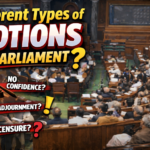Supreme Court : States can have sub-groups among SCs/STs

A five-judge Bench of the Supreme Court held that States can sub-classify Scheduled Castes and Scheduled Tribes, for granting them reservation, in the Central List to provide preferential treatment to the weakest out of the weak.
The constitution bench observed that since state governments have powers to make reservations, they also have the powers to make further sub-classifications in the reservation list.
The bench disagreed with another Supreme Court verdict on the subject delivered in 2005;the EV Chinnaiah v the State of Andhra Pradesh case , which held that it was unconstitutional for state legislatures to create sub categories of SCs and STs.
The Ruling opined that the EV Chinnaiah v the State of Andhra Pradesh case did not correctly apply the decision of ‘Indira Sawhney’ and did not take into account the amendment to Article 342A of the Constitution.
LEARNING FROM HOME/WITHOUT CLASSES/BASICS
Right to Equality is one of the basic fundamental rights that the constitution of India guarantees to all the citizens of the country. Article 16 deals with the equality of opportunity in matters of public employment.
No citizen shall, on grounds only of religion, race, caste, sex, descent, place of birth, residence or any of them, be ineligible for, or discriminated against in respect of, any employment or office under the State.
(3) Nothing in this article shall prevent Parliament from making any law prescribing, in regard to a class or classes of employment or appointment to an office under the Government of, or any local or other authority within, a State or Union territory, any requirement as to residence within that State or Union territory prior to such employment or appointment
(4) Nothing in this article shall prevent the State from making any provision for the reservation of appointments or posts in favor of any backward class of citizens which, in the opinion of the State, is not adequately represented in the services under the State.
Article 16(4-A), inserted vide Constitution (Seventy-Seventh) Amendment Act, 1995, introduced the provision of reservation in matters of promotion with consequential seniority. (The provision of ‘Consequential Seniority’ was introduced vide Constitution (Eighty- Fifth) Amendment Act, 2001).
Article 341
(1) The President [may with respect to any State 3 [or Union territory], and where it is a State, after consultation with the Governor thereof, by public notification, specify the castes, races or tribes or parts of or groups within castes, races or tribes which shall for the purposes of this Constitution be deemed to be Scheduled Castes in relation to that State 2[or Union territory, as the case may be.
(2) Parliament may by law include in or exclude from the list of Scheduled Castes specified in a notification issued under clause (1) any caste, race or tribe or part of or group within any caste, race or tribe, but save as aforesaid a notification issued under the said clause shall not be varied by any subsequent notification.
Article 342
342(1) Scheduled Tribes — the President may with respect to any State or Union Territory, and where it is a State, after consultation with the Governor thereof, by a public notification, specify the tribes or tribal communities or part of or groups within tribes or tribal communities as Scheduled Tribe in relation to that State or Union Territory as the case may be.
(2) Parliament may be law include in or exclude from the list of Scheduled Tribes specified in a notification issued under clause (1) any tribe or tribal community or part of or group within any tribe or tribal community, but save as aforesaid a notification issued under the said clause shall not be varied by any subsequent notification.
Article 338
338. Special Officer for Scheduled Castes, Scheduled Tribes etc
(1) There shall be a Special Officer for the Scheduled Castes and Scheduled Tribes to be appointed by the President
(2) It shall be the duty of the Special Officer to investigate all matters relating to the safeguards provided for the Scheduled Castes and Scheduled Tribes under this Constitution and report to the President upon the working of those safeguards at such intervals as the President may direct, and the President shall cause all such reports to be laid before each House of Parliament
Supreme Court in Indira Sawhney & Ors. v. Union of India
- Upheld Implementation of separate reservation for other backward classes in central government jobs.
- Ordered to exclude Creamy layer of other backward classes from enjoying reservation facilities.
- Ordered to restrict reservations within the 50% limit.




0 Comments